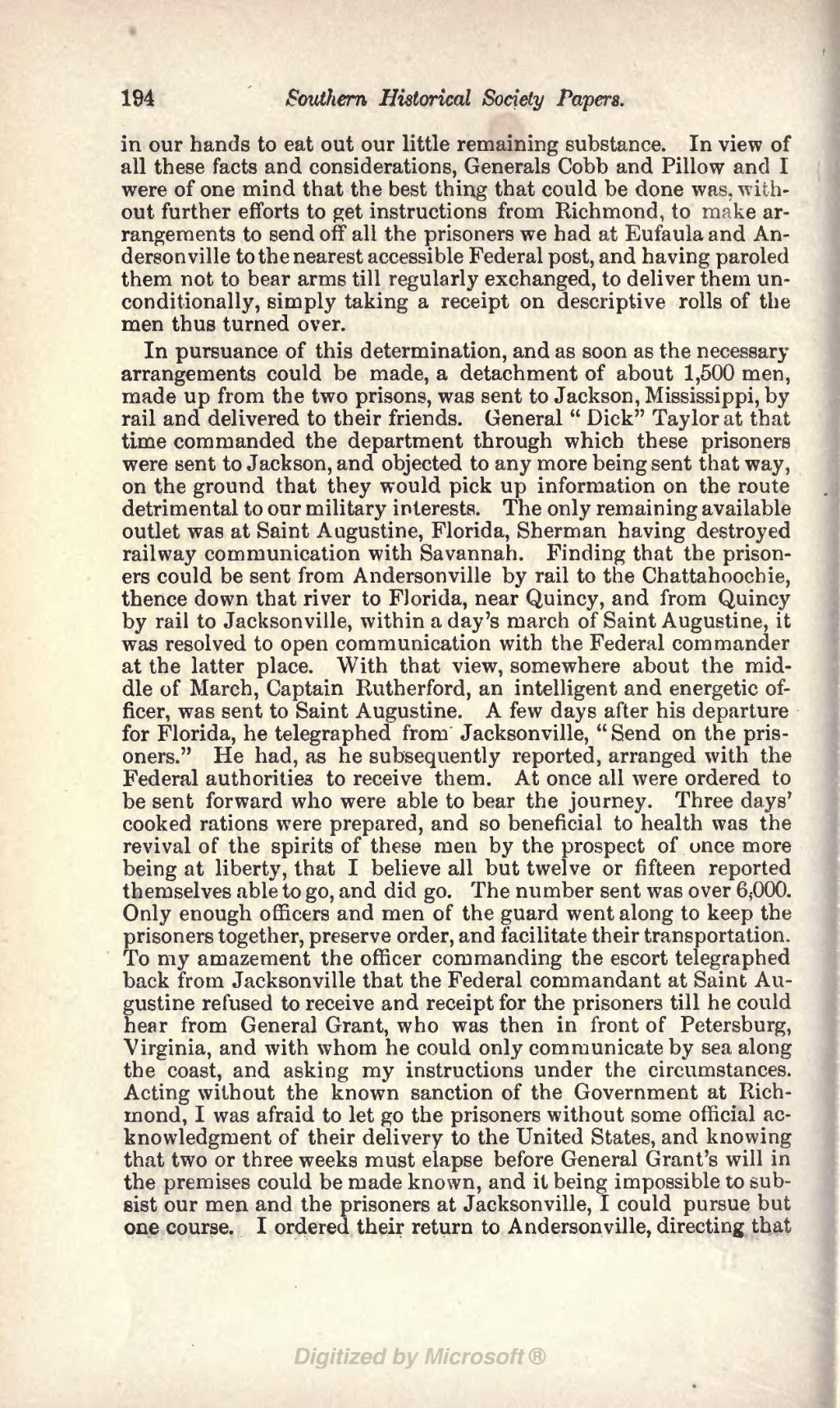in our hands to eat out our little remaining substance. In view of all these facts and considerations, Generals Cobb and Pillow and I were of one mind that the best thing that could be done was, without further efforts to get instructions from Richmond, to make
arrangements to send off all the prisoners we had at Eufaula and Andersonville to the nearest accessible Federal post, and having paroled them not to bear arms till regularly exchanged, to deliver them unconditionally, simply taking a receipt on descriptive rolls of the men thus turned over.
In pursuance of this determination, and as soon as the necessary arrangements could be made, a detachment of about 1,500 men, made up from the two prisons, was sent to Jackson, Mississippi, by rail and delivered to their friends. General "Dick" Taylor at that time commanded the department through which these prisoners were sent to Jackson, and objected to any more being sent that way, on the ground that they would pick up information on the route detrimental to our military interests. The only remaining available outlet was at Saint Augustine, Florida, Sherman having destroyed railway communication with Savannah. Finding that the prisoners could be sent from Andersonville by rail to the Chattahoochie, thence down that river to Florida, near Quincy, and from Quincy by rail to Jacksonville, within a day's march of Saint Augustine, it was resolved to open communication with the Federal commander at the latter place. With that view, somewhere about the middle of March, Captain Rutherford, an intelligent and energetic officer, was sent to Saint Augustine. A few days after his departure for Florida, he telegraphed from Jacksonville, "Send on the prisoners." He had, as he subsequently reported, arranged with the Federal authorities to receive them. At once all were ordered to be sent forward who were able to bear the journey. Three days' cooked rations were prepared, and so beneficial to health was the revival of the spirits of these men by the prospect of once more being at liberty, that I believe all but twelve or fifteen reported themselves able to go, and did go. The number sent was over 6,000. Only enough officers and men of the guard went along to keep the prisoners together, preserve order, and facilitate their transportation. To my amazement the officer commanding the escort telegraphed back from Jacksonville that the Federal commandant at Saint Augustine refused to receive and receipt for the prisoners till he could hear from General Grant, who was then in front of Petersburg, Virginia, and with whom he could only communicate by sea along the coast, and asking my instructions under the circumstances. Acting without the known sanction of the Government at Richmond, I was afraid to let go the prisoners without some official acknowledgment of their delivery to the United States, and knowing that two or three weeks must elapse before General Grant's will in the premises could be made known, and it being impossible to subsist our men and the prisoners at Jacksonville, I could pursue but one course. I ordered their return to Andersonville, directing that
